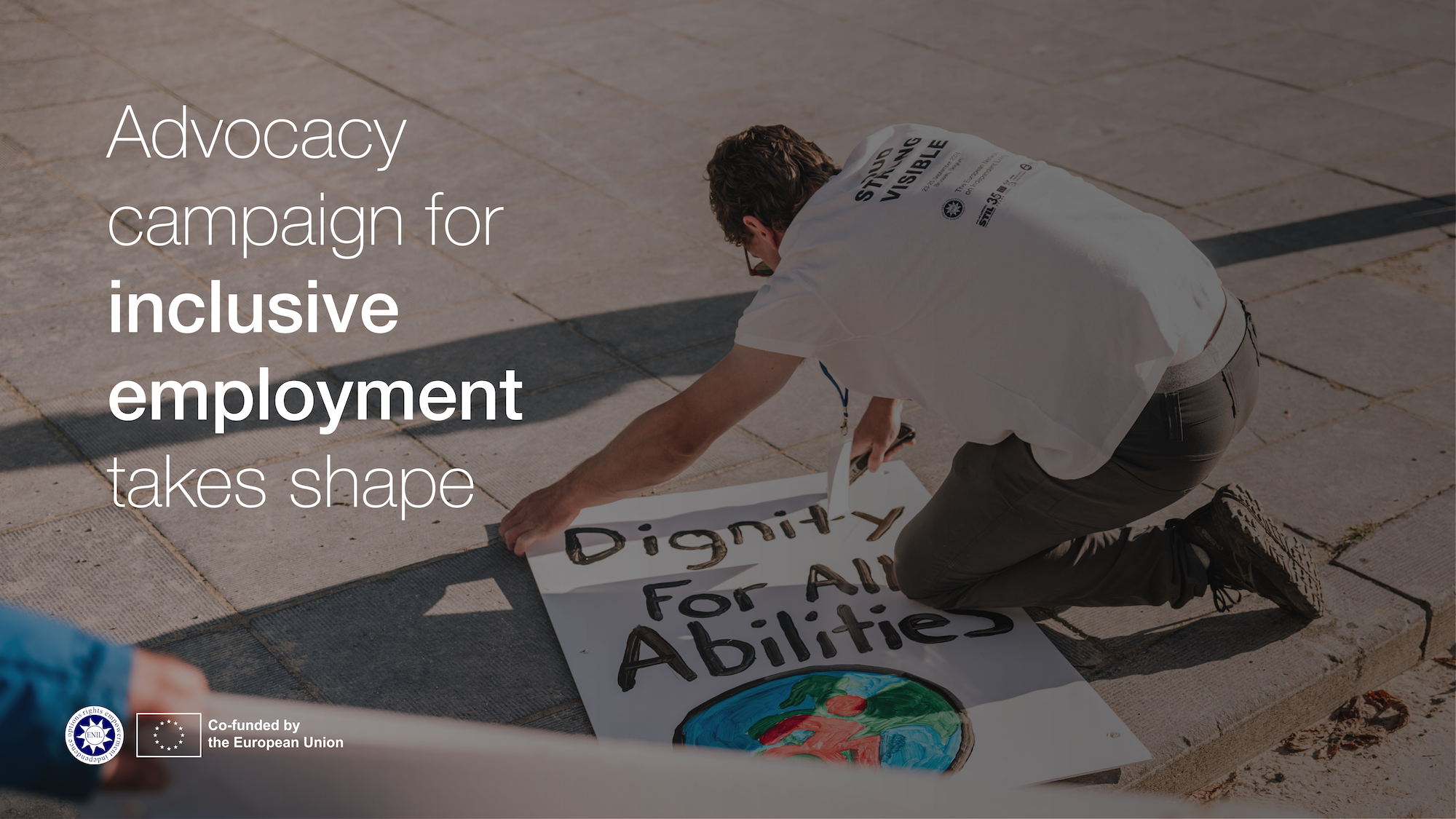Our Advocacy Officer Frank Sioen and EVS volunteer Miriam Graute represented ENIL at the ESF (European Social Fund) Thematic Network on Partnership meeting in Berlin, on the 14thand 15thMay.
ENIL is active in two ESF Thematic Networks: on Partnership and Social Inclusion. These groups meet regularly and seek to improve how the European Social Fund is used in the Member States. They bring together the ESF Managing Authorities, social partners and NGOs. The Partnership network has recently published a paper on co-production. This peer review of the European Code of Conduct on Partnership is relevant to all EU funding programmes, and can be used to improve participation of NGOs in the Post 2020 funding period. The paper includes ENIL’s contributions, and will be published soon.
Besides finalising the co-production paper, the Berlin meeting provided an excellent opportunity to see partnership in action.
On the first afternoon, we visited the City Hall and the “Nachbarschaftsheim” (‘neighbourhood home’ or community centre) of the Berlin district of Neukölln. This community centre stands out because of its proactive approach in working with the incoming EU citizens from Romania and Bulgaria, some of whom are of Roma ethnicity. We learned about the specific ways in which users can shape the service themselves. The service starts from the individual and their preferences. The attitude is very much that if a service does not work or is not used, it is the service, not the users who have to do better!
Another strong example of a good community-based service are the “Stadtteilmütter” (‘district mothers’), which were first introduced in 2006 in Neukölln, the most diverse district in Berlin. The district mothers are themselves of migrant background, and have been trained and employed to reach out to the newly arrived families. In this way, they can reach people who would normally not ask for help. In most cases, the ‘Stadtteilmutter’ is from the same community and uses their mother tongue to inform families about the healthcare and childcare systems, for example. S/he also provides practical assistance in communicating with the authorities and service providers. The ‘district mothers’ bridge the gap between the system and the ones furthest removed from it. This initiative is funded by the Fund for European Aid to the Most Deprived (FEAD).
[Photo shows ENIL’s Advocacy Officer Frank Sioen with the Neukölln Buddy Bear]

